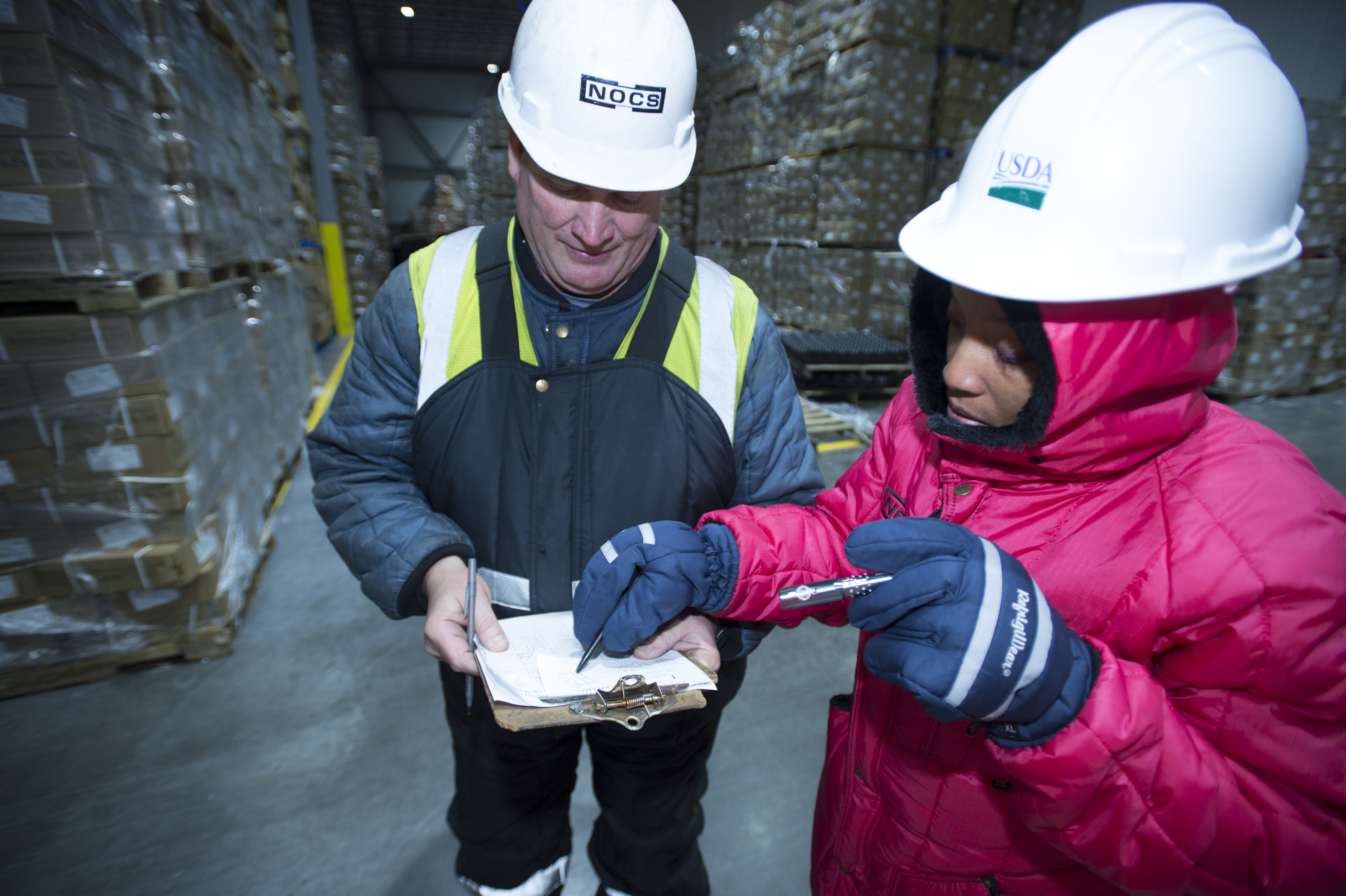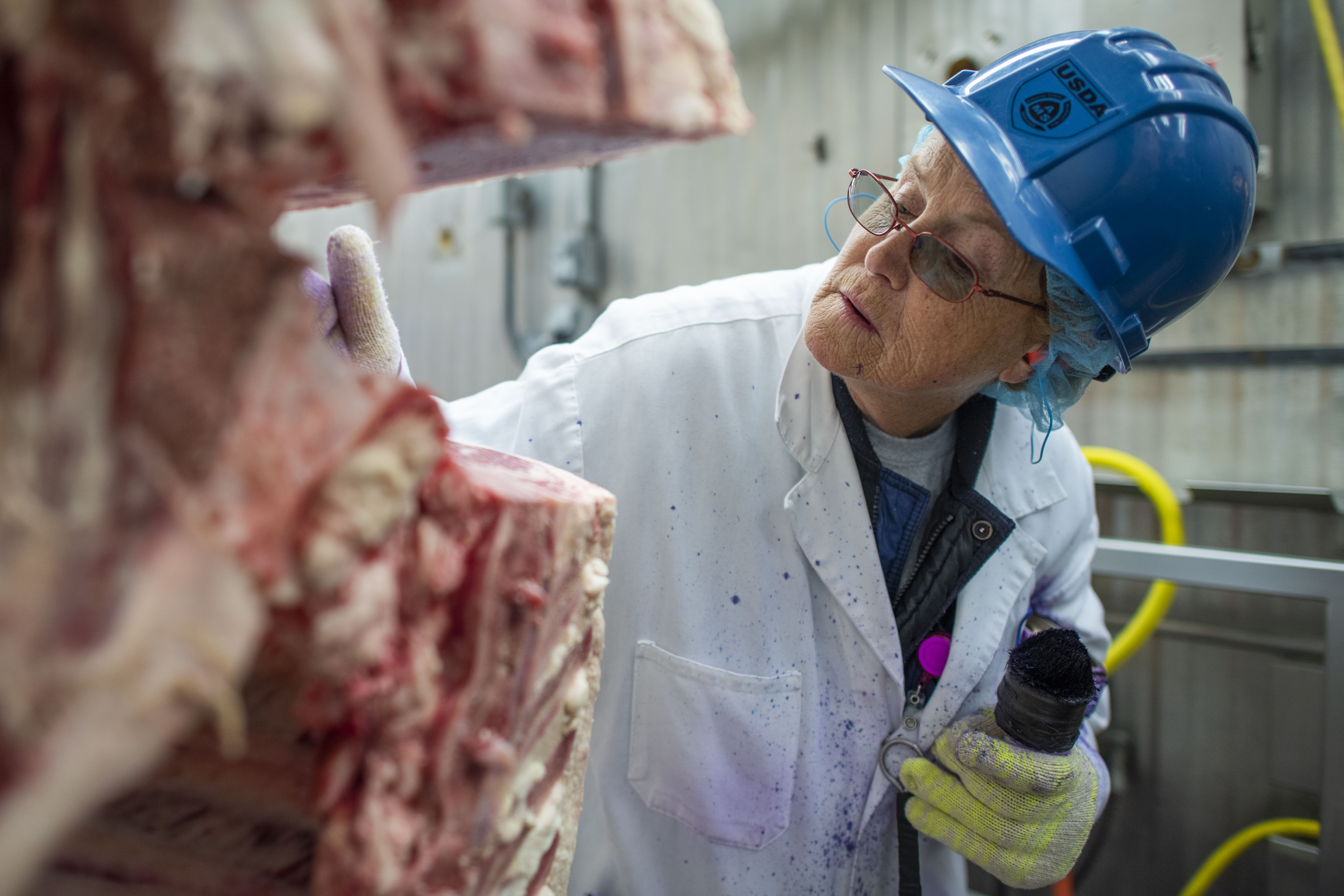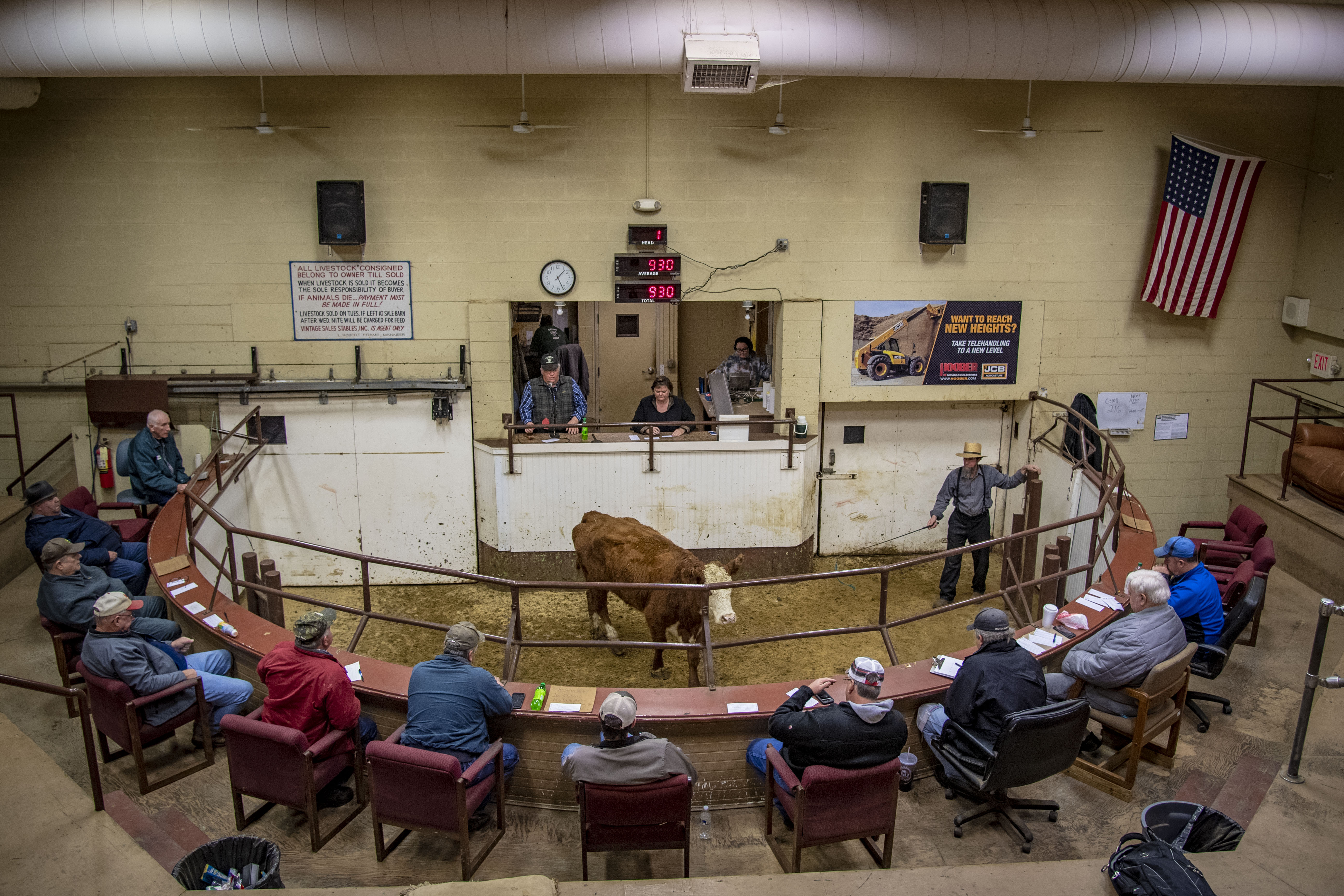USDA’s Agricultural Marketing Service offers a variety of different careers to help build domestic and international markets for U.S. producers of food, fiber and specialty crops. Use this site to find information on our types of careers, including the locations of our offices, typical work environment, and applicant requirements.
Can’t find a career path you’re looking for? AMS offers more than 61 different types of careers. Please check back as we add more careers.
Graders establish and confirm the quality and/or condition of an agricultural product across different commodity markets.
 Agricultural Marketing Specialist
Agricultural Marketing Specialist
Agricultural Marketing Specialists manage, research, analyze, regulate, and perform other specialized work involved with the marketing of one or more agricultural commodities or products.
Market News Reporters collect, analyze and communicate information on available supplies, movement, demand, prices, marketing trends, and other facts relating to the marketing of agricultural products.
Agricultural Commodity Technician
Agricultural Commodity Technicians perform a variety of equipment check-testing with an emphasis on sample preparation, sample collection, data entry, shipping and receiving, record management, and other technical functions associated with grading, inspection, and program-specific functions.
Agricultural Economists provide economic information, data and analyses of specialty crops, dairy products, livestock, meat, and poultry commodities for domestic food assistance programs and/or assess the impact of AMS marketing order and research and promotion programs.
Agricultural Warehouse Inspector
Agricultural Warehouse Inspectors facilitate the marketing of U.S. grain and related products by establishing standards for quality assessments, regulating handling practices, and managing a network of Federal, State, and private laboratories that provide impartial official inspection and weighing service.
Chemists are responsible for assigned projects and/or programs in support of analytical services, analytical method development, and quality assurance. Specific areas of responsibility include, but are not limited to, the analysis of mycotoxins, pesticide residues, and heavy metals/elements.
Compliance and Enforcement Specialist
Compliance and Enforcement Specialists plan and administer compliance and enforcement, litigation coordination, and compliance plans as they relate to agricultural import and export acts, marketing order and regulatory requirements.
Engineers work and consult with equipment manufacturers and local contractors to ensure that heating, ventilating, and air conditioning (HVAC) systems properly condition cotton samples for instrument evaluation. They monitor operation of the systems in all classing offices to insure continuous maintenance of conditioning.
Equipment Specialists coordinate development of new processes, design innovation, and fabrication techniques as they relate to the acceptability of the equipment for use in plants surveyed and approved for USDA grading services.
Food Technologists apply science and technology to food product research, development, improvement, evaluation, production, processing, preservation, and packaging. The work requires knowledge of the biological, physical, and engineering sciences that make possible safe and wholesome food products, equipment capabilities and limitations, and relevant laws, regulations, and agency programs.
Microbiologists conduct microbiological analyses, keep proper records, and interpret results.
Physical Scientists perform analytical analysis to facilitate domestic and international marketing of food and agricultural commodities.
Physical Scientist Technicians assist AMS’s scientists in the collection, preparation, and analysis of data. They assist in the development and evaluation of new testing procedures and recommend modifications to existing techniques to improve efficiency and accuracy of operations.
Plant Variety Examiners examine new applications and grant certificates to provides intellectual property protection to breeders of new varieties of sexually reproduced, tuber propagated, and asexually reproduced plant varieties.



